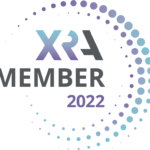The title is a favorite question of Peter Thiel, the German American billionaire entrepreneur and venture capitalist, co-founder of PayPal, Palantir Technologies, and Founders Fund, and the first outside investor in Facebook. In his book Zero to One, he devotes an entire section to this question because it is intellectually difficult. Brilliant thinking is rare, but courage is in even shorter supply than genius. So, what important truth do very few people agree with you on?
Thinking for yourself is often very challenging and it is easier to maintain the status quo. However, it is the first week of the year and this is an acceptable time that people start evaluating how they feel, the choices they make, and if they are thriving. This time of year many people start to adopt some lifestyle choices that make them feel energetic and well-rested, which positively impacts work and home life. Oftentimes in January people even take a break from alcohol.
I recently met someone that is focusing on doing this, but for a lot longer than one month and not for just himself, Brian Yates, CEO of 100 Proof Living. He has dedicated his life to focus on an important truth that very few people agree with him on: helping companies understand, identify, and address the significant burden of excessive alcohol use in the work environment. This is important work and according to the CDC, the United States has an alcohol crisis costing employers $179 billion in lost productivity, $28 billion per year in healthcare costs for employees with excessive drinking habits as well as the untold liability from potential accidents, poor judgment, and alcohol-related incidents. 100 Proof Living helps companies address the hidden costs of excessive alcohol use and helps them avoid the challenges that happen after an employee goes too far when under the influence at a work-sponsored event.
Alcohol is a mainstay of our society for those over 21 years of age. However, binge drinking has become the most common, costly, and deadly alcohol use pattern in the United States. According to the CDC, 1 in 6 adults binge drink, which is more than 38 million people. Binge drinkers average eight drinks per occasion, and this happens four times per month. Interestingly, 9 out of 10 binge drinkers are not alcohol dependent. So, you may ask, what is binge drinking? It can formally be defined as five or more drinks for men and four or more drinks for women when consumed on one occasion.
So, what does this have to do with business? The CDC has addressed the four main risk factors for preventing chronic diseases:
- Poor Nutrition
- Tobacco Use
- Lack of Exercise
- Excess Drinking
Corporate America and our society, in general, have taken aggressive steps to address three of those four risk factors, but not alcohol. Think about the resources dedicated to smoking cessation, diet, exercise, and mental health within the workplace. Employers provide individuals with countless programs, trainers, apps, websites, and more to address these risks. Still, excessive alcohol use is seldom addressed – even though it is provided and often overserved at various work-sponsored events. It is an uncontested and shared belief that booze is good for networking, sales, and even client and employee engagement. However, it is crucial to understand the downside: liability, loss of productivity, and health care costs.
For many business expenses, leadership just asks, “What is this going to cost?” and then decides, instead of pausing to consciously decide if the potential other risks of the decision are worth it. Considering the Me Too Movement, the Diversity and Inclusivity movement, and the obvious factors that have already been stated (productivity loss, healthcare costs, and poor performance), perhaps the presence and costs of alcohol in the workplace should be further analyzed. According to a Cornell study, there is more than a twofold increase in the incidence of gender harassment experienced by women for every additional alcoholic drink consumed by the men in their work units during or around working hours– just think about Holiday Parties and Sales Kick-Off meetings. Perhaps women may feel uncomfortable around men when drinking (or vice versa), but this person must endure this because it is a work function, and that may be unfair. Alternatively, perhaps someone feels compelled to drink and compromise their moral code just to feel included and that they belong.
Re-think the Drink at Work?
Of course, not everyone drinks, and they may feel fine, but with the movement for full inclusion and diversity, perhaps re-thinking the drink could turn out to be an advantage to create more inclusivity rather than exclusivity. If you are a business leader and focused on improving diversity and inclusion, perhaps you may need to address whether non-drinkers feel excluded at work events and the ramifications. Sometimes, it just starts with asking. Most leaders do not think about this and unknowingly may contribute to the problem through everyday events such as sales meetings, customer dinners, offsite meetings, team building events, holiday parties, and even your boss coming into town for a work dinner.
Sober Minded at Work
The sober-minded movement is not about telling people not to drink alcohol, which is absurd and this is a personal choice. Instead, perhaps it is a paradigm shift, that there is a time and place to drink responsibly, and it may not be at work or in a work environment.
An interesting article in the HuffPost “2020 Was Going to be the Year of the Sober-Curious Movement – Now What?” states “From clinking cocktails on many work Zoom happy hours, social distancing may have led to an uptick in social (and even antisocial) drinking.” Yet, the growing sober movement still exists and there are even sober bars popping up that offer carefully crafted elixirs as a fun and tasty alternative. However, even if employees are making these sober-minded choices on their own, if employees see their boss drinking, they may feel the need to drink to fit in, to be accepted, to connect, and even to get promoted. They may feel like they are being judged if they don’t drink, or they feel left out so they skip the events. This may become a diversity issue for those who do not drink.
It is no secret that the top industries that provide alcohol are the legal industry and finance. So, imagine the peer pressure a young law firm student, intern, or rookie experiences. Honestly, the peer pressure and the need to fit in may compel them to make choices they do not want to, or worse get them fired, in jail, or a family dispute. In a recent article in The Independent last January 2020,
- Junior lawyers have complained about alcohol-fueled work events, claiming they can encourage instances of bullying and sexual harassment.
- In a new report published by the junior division of the Law Society, which represents 140,000 lawyers and solicitors in England and Wales, authors pointed to several areas where “unhealthy approaches to alcohol consumption” have a negative impact on productivity, inclusivity, and overall health and wellbeing.
- The report states that young staff or aspiring lawyers have felt “pressure to consume alcohol to show that they can fit in with the team, socialize well and secure their future career progression”.
- Meanwhile, the report adds that when facing pressure from senior members of staff, such behavior could be construed as workplace bullying.
Some companies are starting to data-mine their expenses and identify the company’s codes and costs related to work-related alcohol consumption and are making changes. It actually costs a company on average about $2000 per year per employee for alcohol, not including what the alcohol costs are spent on clients. Salesforce does not serve alcohol at work events. A few years ago, Salesforce CEO Marc Benioff reminded employees of workplace drinking ban saying that ‘Alcohol is a drug’. Other companies are looking at using dollars not spent on alcohol on health and wellbeing services such as mental health counseling, ergonomic resources for the new home office, and other resources that foster inclusion. Even Goldman Sachs has an alcohol policy. In 2019, the company adopted new guidelines for the use of alcoholic beverages on firm premises. Also off the premise, or “when boozing under the eye of management, employees are told to use moderation and good judgment.
As Americans, we have developed unhealthy behaviors and patterns because we are busy and stressed, but what if we used other coping mechanisms and alternatives within business, outside of alcohol. If you think back to 1964 cigarettes were a common part of business, but over the past 50 years smoking at work is minimal and almost non-existent. Interestingly, in 5 years seventy-five percent of the workforce will be millennials and they drink far less than other generations. This may be due to a number of reasons, from more education on the dangers of excess alcohol intake through the public service announcements to maybe even watching their parents just numb out nightly to disengagement. Experts on alcohol abuse have found one demographic group that is drinking at an alarming rate. Not teenagers. Not college-age people. It’s baby boomers. According to Mr. Yates, “once business leaders see the numbers on how alcohol is impacting their organization, they can’t unsee it. Perhaps it is time to examine if this flag the CDC is waving about an alcohol crisis in corporate America pertains to your organization.”
COVID-19 has brought up a lot of concerns and many are ones we can not control, but perhaps we can control drinking. Nielsen reports alcohol sales in stores were up 54% in late March 2020 compared to the same time in 2019 and online sales were up nearly 500% in late April. COVID-19 is still here in 2021, but perhaps it is time to evaluate the relationship with alcohol at work. I understand and agree that what people choose to do on their own time is their business; we still do live in a free country. But, in our current time, it is even more important for leaders and businesses to think about creating the best, most inclusive, and stress-free environment, for all their employees to thrive without peer pressure, impaired judgment, and guilt. Perhaps not drinking in the work environment may become your new contrarian truth?
Colleen Reilly, Contributor
Leadership Strategy
I cover positive change for individuals and organizations.

